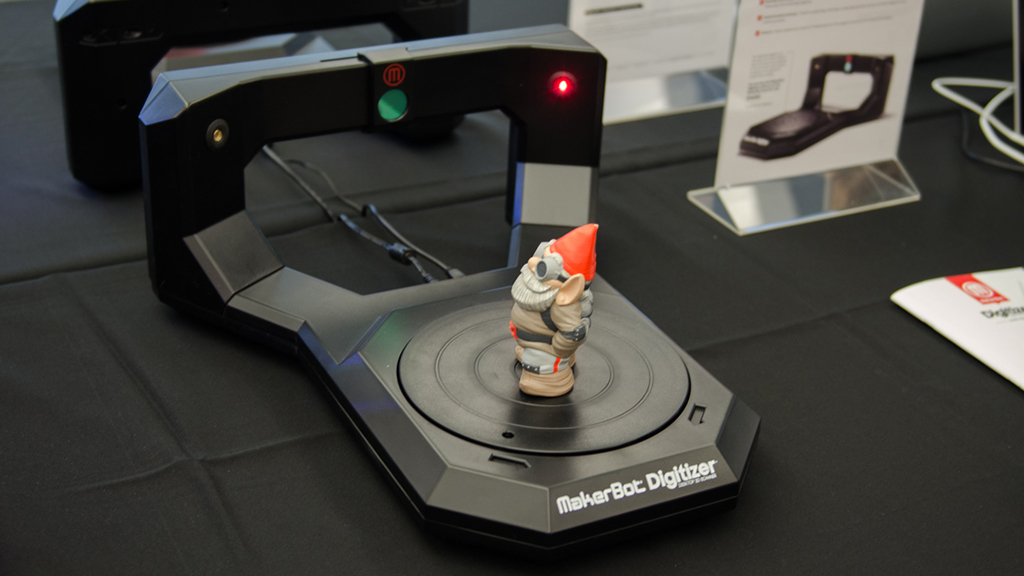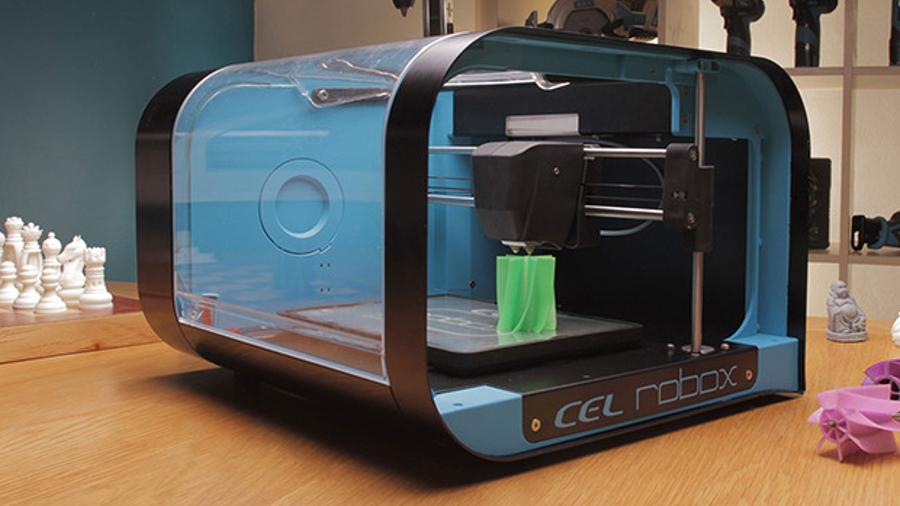
For those without AutoCad knowhow or expertise in creating their own STL files (the 3D blueprint used by 3D printers), there are cloud services such as MakerBot's Thingiverse and 3D System's Cubify to let you pick out designs by other makers. Object replication is also quickly becoming a simple matter thanks to consumer targeted 3D scanners like the Digitizer and Sense.
Catching fire at CES
At CES 2014 in early next month, 3D printing could see another injection of innovation - this will be the first year with a TechZone devoted entirely to the technology.
According to the Consumer Electronics Association, which runs the show, there will be no less than 28 manufacturers displaying their 3D wares. There will be a number of big name printer makers like higher resolution firm FormLabs, the paper printing Mcor Technologies, and MakerBot, which is also host a keynote.
"There's all the top names from this nascent industry at this TechZone and giving demos on a variety of applications from general use products, but also showing prototypes for medical use, engineering [and] automotive," CEA's Director of Industry Analysis Steve Koenig told us. "It's going to be a pretty hot area for this coming show."
Just like nearly every bit of tech before it, Koenig said the key to 3D printing finding its way into consumers' homes is its price. In order for cheaper printers to happen there has to be competition, which is exactly what CEA expects to see at CES and beyond.
"Within a couple of years 3D printers will be well under $1,000 (about £612/AU$1,112) and that will enable people to create a variety of things from Christmas ornaments to cell phone cases, or missing furniture pieces," Koenig theorized.

Koenig noted that consumer awareness of the technology is still budding. As of late, 3D printing is getting more play in the news whether it be the controversy of 3D printed hand guns, plans for 3D printed phones, or HP joining the fray.
Get daily insight, inspiration and deals in your inbox
Sign up for breaking news, reviews, opinion, top tech deals, and more.
"I think we're only now just seeing the tip of the iceberg in terms of the applications of this technology, and once it really gets out there into the consumer space, which is beginning to happen, that's where the real innovation is going to come from."
A burgeoning market
Koenig also dropped a number of figures numbers from CEA's various forecasts that support the growing trend of consumer 3D printing.
The CEA accounts that there were 63,000 consumer-use 3D printers sold in the last year, grossing an estimated $87 million (about £52.9m/AU$95.1m) worldwide.
In 2014 the association expects 3D printer sales to increase by 44% to 91,000 units, amassing a 41% revenue spike for a total year's earnings of $123 million (about £74.8m/AU$134.5m).

The US holds the lion's share of the 3D printing market with 41,000 printers. That number is expected to increase to 60,000 next year. US revenues for 3D printers meanwhile were estimated around $52 million (about £31.6m/AU$56.8m) with an expected rise to $74 million (about £45m/AU$80.9m).
The CEA also gave us records for 2012 that places 38,000 3D printers sold worldwide, 25,000 in the US alone, and $54 million (about £32.8m/AU$59m) grossed worldwide with $32 million (about £19.4m/AU$35m) in the US.
After 2014, things are only looking up for the advanced fabrication world when it's predicted the market will skyrocket to 250,000 units and $330 million (about £200.7m/AU$361m) in revenue worldwide.
Koenig was sure to note that these numbers only account for the consumer, home, and small business-use market.
"Down the line I can envision more models being wrapped around this technology," Koenig continued. "We already have kiosks at the pet store that laser engrave dog tags, so why not put a 3D printing kiosk at wireless retailers that will while you're filling out paper work for your new two-year agreement?
Kevin Lee was a former computing reporter at TechRadar. Kevin is now the SEO Updates Editor at IGN based in New York. He handles all of the best of tech buying guides while also dipping his hand in the entertainment and games evergreen content. Kevin has over eight years of experience in the tech and games publications with previous bylines at Polygon, PC World, and more. Outside of work, Kevin is major movie buff of cult and bad films. He also regularly plays flight & space sim and racing games. IRL he's a fan of archery, axe throwing, and board games.
